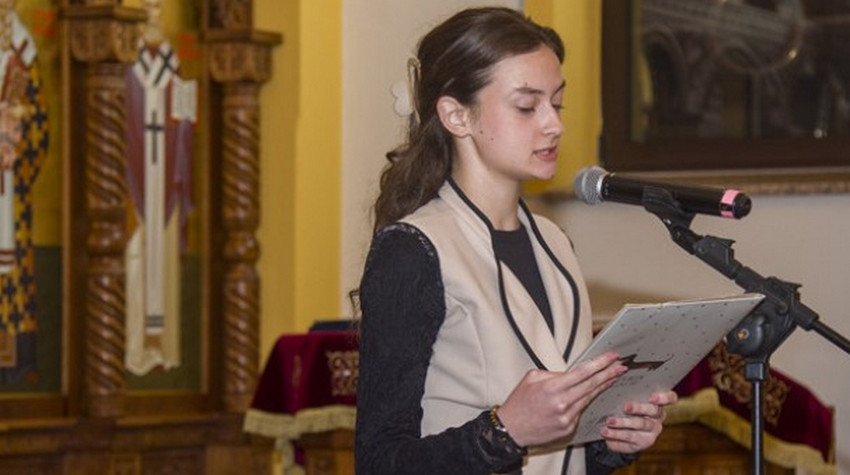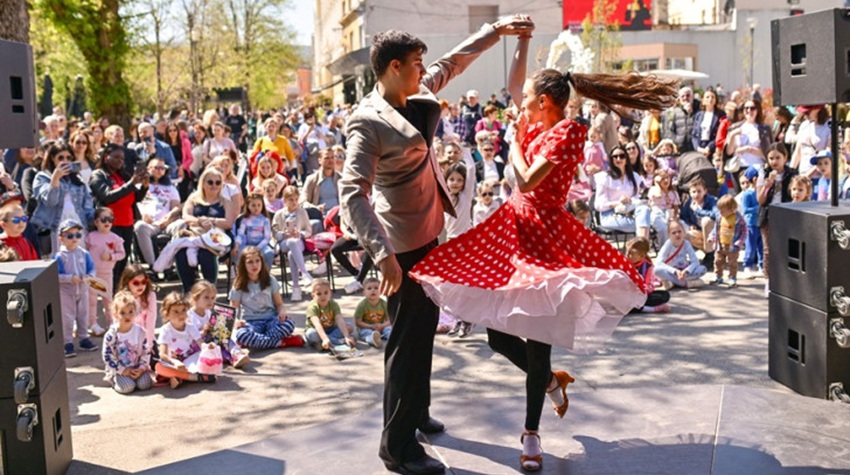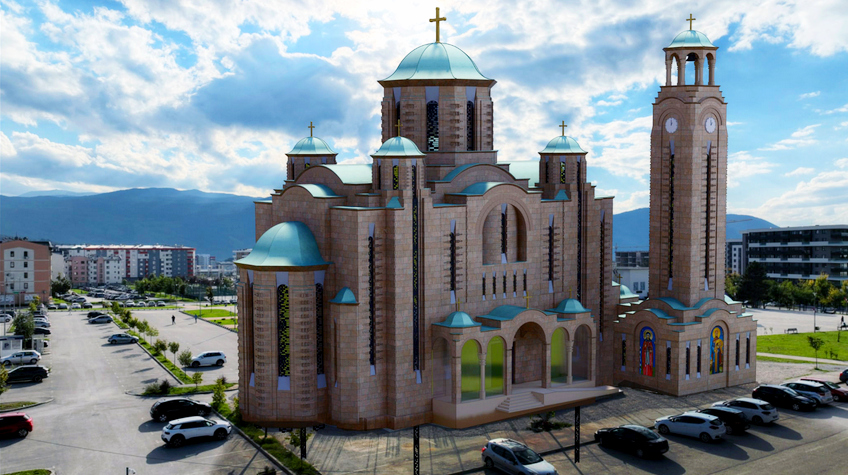BALL REVIVES MEMORIES OF LOVE THAT KNOWS NO BOUNDARIES
A traditional ball was held at the Sokolski Dom in Bijeljina as part of the cultural event "Dučićevi i Magini Sati," reviving memories of the profound love between Jovan Dučić and Bijeljina’s poetess Magdalena Živanović.
The ball had a humanitarian purpose, with all proceeds from ticket sales and donations directed to the Coalition "Kolosi," which brings together organizations and associations for persons with disabilities. The funds will be allocated to adapting housing units for members of this coalition.
The roles of Maga and Jovan were performed by young actors Marijana Nikolić and Marko Sekulić, both students, who expressed their honor in being part of such an event.
The musical performance of the ball was organized by the Association of Musical Artists of Semberija, the "Srbadija" Choir, SKUD from Janja, the "Bisernica" Ensemble, and the "Uvertira" Quartet from Loznica.
On behalf of the organizers, Filip Božić explained that Dučić and Magdalena first met at a ball in 1893, and this symbolism inspired the organization of this event.
City Manager Tatjana Pantić highlighted the extraordinary mark that Dučić and Maga left in Bijeljina's history—Maga as the city's first poetess, known for her bold and progressive poems for that era.
Jovan Dučić, a native of Trebinje, is considered the most significant poet of modernism and a lyricist of the golden age of Serbian literature. A poet, writer, and diplomat, he was a co-founder of the Narodna Odbrana organization and a member of the Serbian Royal Academy.
Dučić faced significant hardships, losing his father Andrija to the Herzegovinian Uprising at just one year old. He completed his primary education in Trebinje, attended trade school in Mostar, and later studied at teacher’s colleges in Sarajevo and Sombor.
As a staunch critic of Austro-Hungarian rule, his writings led to his expulsion from Bijeljina, where he had worked as a teacher. Songs like "Otadžbina" and "Oj Bosno" brought him trouble, driving him to a monastery school in Žitomislić.
Despite these challenges, he returned to Mostar a year later, collaborating with Aleksa Šantić to launch the literary magazine Zora. However, similar circumstances led to his departure from this role. He continued his education in Geneva, earning a law degree before joining the Serbian Ministry of Foreign Affairs.
Dučić served in Constantinople, Sofia, Rome, Athens, Cairo, and Madrid. With the occupation of Yugoslavia in 1941, and after Spain recognized the Independent State of Croatia (NDH), he moved to neutral Portugal and later to the United States. In Illinois, he led a Serbian diaspora organization, founded by Mihajlo Pupin, until his death in 1943.
His final wish was to be buried in Trebinje, a wish fulfilled on October 22, 2000, when his remains were transferred from the United States to the city under Mount Leotar.
Dučić's vivid and melodious poetry has often been described by literary critics as a reflection of his refined, discreet, and witty personality.
















